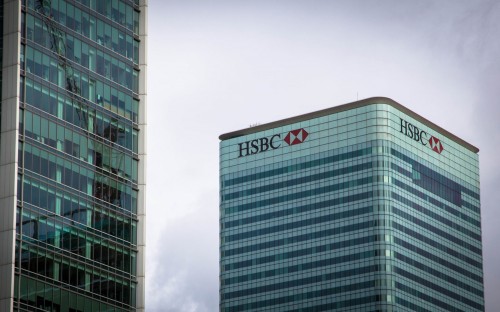An MBA improves bankers’ chances of reaching the top, with 21% of banks’ managing directors – typically the top rank at banks apart from Goldman Sachs – having obtained the degree.
The figures were compiled based on analysis of data from 1,650 finance employees in front office positions at London banks by Emolument.com, a salary benchmarking website.
“MBAs are a hot topic in tough economic times,” said Thomas Drewry, CEO at Emolument.
It will be welcome news for business students, who have entered the financial sector in fewer numbers as banks have faced reputational challenges, and increased regulation since the crisis.
At London Business School in 2007, 46% of MBA students got jobs in finance, but in 2013 only 28% did. At Chicago’s Booth School of Business, the number of students landing jobs in investment banking fell from 30% in 2007 to just 16% last year.
It has never been more difficult to reach the senior ranks at large lenders. There has been a decline in senior appointments, according to press releases from banks, giving rise to a “squeezed middle” of bankers who cannot progress in their careers.
Morgan Stanley, for instance, in 2015 appointed just 151 managing directors, compared with more than 200 appointments as early as in 2011.
At Goldman only 78 new partners were appointed in 2014, a fall from the 94 the bank appointed in 2008. Partners at Goldman, one of the most coveted titles on Wall Street, earn a salary of about $900,000, and have access to a special bonus pool.
Deutsche Bank, Germany’s largest lender, elevated only half the number of bankers to the rank of managing director in 2013 as it did in 2008.
Competition for mid-level finance jobs in the City of London in particular is also fierce.
Ending the buoyant jobs market through the end of last year, the number of new financial services jobs in the City fell 18% in January, recruitment firm Astbury Marsden said this month, as banks consider their strategic response to falling oil prices and instability in the Eurozone.
“City recruitment was gaining momentum during 2014, but with all the drama of recent weeks it is not surprising that we are seeing a slight pause,” said a spokesperson.
Jonathan Nicholson, managing director of Astbury Marsden, said in a separate report that there is much less focus on MBAs in the current employment market.
“Their importance has fallen since the downturn,” he said. “Employers are much more interested in seeing experience and aptitude than theory.”
Banks have also tended to hire fresh graduates for entry-level jobs in recent years, and have scaled back or pulled out of their recruiting on some business school campuses.
While analysis of bank data suggests an MBA is still a viable route to the top of the greasy pole, non-MBA holders go on to earn more as directors and managing directors than MBAs, according to Emolument.
For managing directors the average MBA-educated salary is £423,000, less than the £506,000 non-business graduates earn, Emolument said.
But lower level bankers with an MBA, such as associates, earn £102,000 in salary on average, compared with £85,000 for those with other degrees, the data show.
However, some of Europe’s biggest banks have begun to review junior employees’ pay, as they seek to increase basic salaries instead of bonuses, which have come under regulatory pressure.
EU rules have capped bonuses for senior bankers at twice the level of annual salary.
Morgan Stanley, for instance, last year increased the pay of associates and vice-presidents by between 20% to 25% to offset lower bonuses.
Goldman and Barclays have also reportedly implemented double-digit salary increases in the past year for their junior bankers.
RECAPTHA :
02
a0
9f
f1








